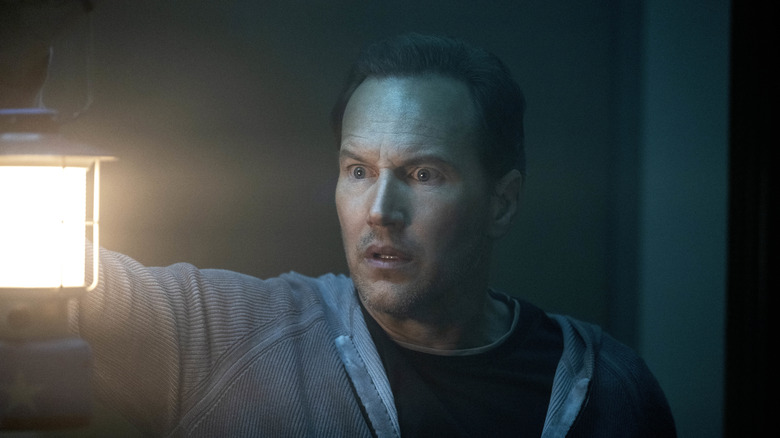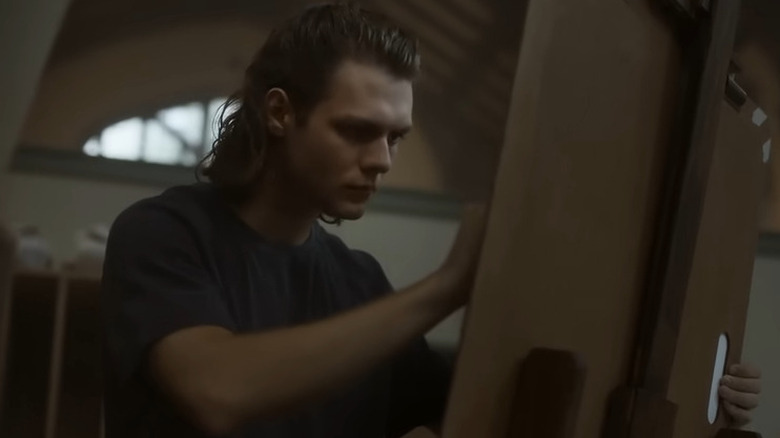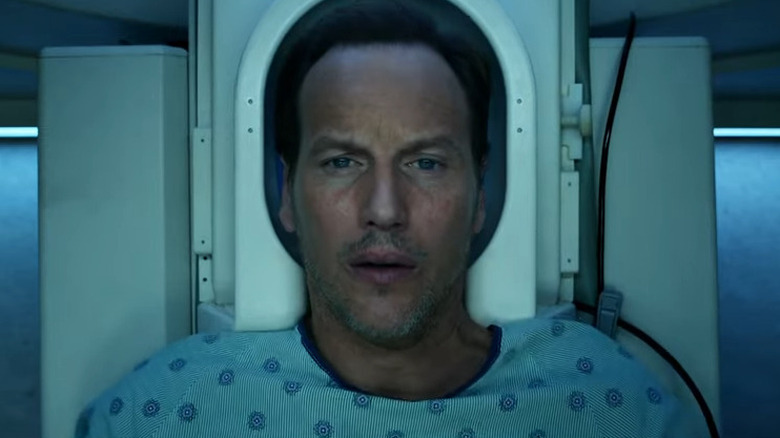Insidious: The Red Door Review: Grim Horror Meets Mental Health Awareness
- Emotionally intelligent narrative arc
- One or two great horror set pieces
- Weak jump scares
- Red-Faced Demon reaches the point of diminishing returns
Over the past 13 years, we've gotten five different "Insidious" films. The horror franchise is certainly no slouch, but its sequels have been inconsistent in terms of quality. So it's something of a surprise to report that its latest entry, "Insidious: The Red Door" — directed by Patrick Wilson in his feature debut — is probably the best in the series since the original hit theaters in 2010. It delivers on jump scares as well as emotional resonance, taking a schlocky horror franchise and giving it added depth. It's rewarding to see the cast return, especially the child stars who just happen to be the perfect age to play the teenage versions of their characters from the first and second films. The film's pocket ace is Ty Simpkins, who was cast in "Insidious" at the age of eight; he's grown into a good enough actor to headline a sequel film, which definitely doesn't always happen in this sort of situation.
Set 10 years after the events of the original "Insidious" film, "Insidious: The Red Door" picks up in the most uplifting of locations: The funeral of Josh Lambert's (Patrick Wilson) mother, Lorraine. Josh and Renai (Rose Byrne) have divorced since the events of "Insidious: Chapter 2," and he and Dalton (Ty Simpkins) are barely on speaking terms. Renai cautiously floats the idea of Josh driving Dalton to college in a last-ditch effort for the two of them to bond before the boy leaves the nest. But once Dalton is settled in at college, it isn't long before both he and Josh are plagued by nightmares of the mysterious spirit realm known as the Further. These visions begin to leech into the real world and threaten all they hold dear.
The consequences of secrecy
"Insidious: The Red Door" offers up a realistic reflection of how the Lambert family has fared in the years since "Insidious: Chapter 2," in which Josh is possessed by a long-dead serial killer and tries to murder his family, "The Shining" style. Of course their marriage has fallen apart: Renai watched Josh almost kill their son, and, thanks to the stupefyingly short-sighted decision to hypnotize Josh and Dalton into forgetting their otherworldly abilities, she has to pretend it never happened. Of course Josh and Dalton have practically no relationship — they've blocked out their most profound shared experience, and are both subconsciously suspicious of the gaps in their memory from this time period. Wallpapering over the past doesn't save Josh and Dalton from being lured into the Further again, and it certainly doesn't prevent their family from crumbling under the weight of suppressed trauma and lies. It's a small thing, really, that the events of a previous film have narrative consequences. But it's all too rare in many horror franchises, which often seem to press an emotional reset button for their characters at the end of each entry.
It's trendy to not just let scary flicks be scary and make every horror movie into a metaphor for something else. But it's hard not to view "Insidious: The Red Door" through the lens of stigma around mental illness. The theme of the film is the damage secrets cause, and what happens when we try to sweep unpleasant truths under the rug because they're too difficult to address directly. When Josh's doctor asks him if mental illness runs in his family, he has no idea. And why would he? That isn't something that his parents' generation would ever bring up. But with astral projection abilities serving as a stand-in for hereditary mental illness, we see how much more dangerous and difficult life becomes for our characters because of this silence. Pretending nothing is wrong leads to more harm; the only way that the Lambert family can survive is to face its challenges head-on.
Few new scares (except for the MRI)
"Insidious: The Red Door" does a good job of exploring its heavy themes, as well as the fraught relationship between Josh and Dalton. As far as scares go, though, it's kind of a mixed bag. It has a few truly fantastic set pieces — we won't be setting foot in an MRI machine any time soon, thanks to one especially horrifying scene. But there's something weird going on with some of the entities. It's almost like they're too well-lit, and the camera lingers on them for too long, which makes the viewer acutely aware of the makeup the actors are wearing. The Red-Faced Demon is an especially notable victim of this — the more we see of him, especially in motion, the less scary he is.
There are some good helpful ghost moments, but the ones who attack Dalton are so anonymous, they don't have much impact. In a way, it's nice that the film doesn't get bogged down in creating the mythology for yet another tortured soul; this allows it to devote the majority of its screen time to Josh and Dalton. But it does create a ripple effect of unmemorable monsters. Lastly, in the complaints column: Sinclair Daniel does her best as Chris Winslow, Dalton's college roommate and closest friend, but wow, do these guys not know how to write dialogue for a Gen Z girl. She reads like a manic pixie best friend from the mid-2000s.
What we've got here is a franchise finale that, like many of the other films in the "Insidious" series, fails to meet its full potential. But "Insidious: The Red Door" at least does right by its two lead characters, giving them the emotional reconciliation they deserve after all their trials and tribulations. It may not be the spookiest or most gruesome film in the series — aside from a few great jump-scare moments scattered throughout — but it is perhaps the one with the most coherent narrative voice, and that's not nothing.
"Insidious: The Red Door" hits theaters on Friday, July 7.


